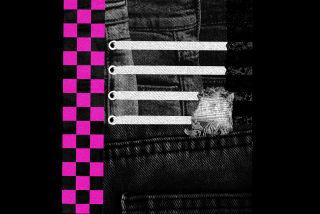Valley Perspective : Discipline Over Dance Crews Fair : Alemany High, in upholding promise of a safe campus, is teaching students that actions have consequences.
- Share via
There has been considerable comment recently concerning the 10 students asked to withdraw from Alemany High School because of their association with dance crews.
In an editorial, The Times questioned the fairness of Alemany’s policy of dismissal for those associated with dance crews. Much was made of whether a crew was the same as a gang and whether boys with high grade-point averages should be treated the same way one would deal with members of a street gang.
While in no way are these boys criminals, they did make some poor choices that had the potential for real trouble. As a result, the school was obligated by its promise to its students and their parents to act swiftly and firmly in support of its zero-tolerance policy.
I teach at a private Catholic school where we have similar values. Our rules are in place because parents have requested them, because police have recommended them to ensure campus safety and because experience has demonstrated that associations and activities have collateral consequences that go far beyond the immediate and obvious.
In my 10 years of teaching I have found that grades and at-school behavior are not reliable indicators of whether a student has the potential for bringing trouble to campus. Frequently, students have associations and affiliations after school that spill over onto the campus, honors or not. The result can be violence, threats, intimidation, and not infrequently, drug use and sales, weapons and sexual promiscuity. The dance crews and their parties mentioned in the original news story are not wholesome. Many of these “dances” take place unsupervised and after hours. Law enforcement authorities and the teens themselves tell us that drugs and alcohol are virtually ubiquitous. In addition, men in their 20s attend, looking for younger girls. When you combine these factors, the sum is trouble.
What parent wants his child attending something like that? By removing students who participate in these activities or associate with those who do, we not only lessen the threat of collateral violence and substance abuse, but also remove some of the peer pressure placed on those students who would not otherwise be tempted to become involved.
The editorial made the point that not one of those asked to leave (not expelled mind you, but asked to voluntarily withdraw, and there is a difference) had brought any disfavor to the campus. I beg to differ. They initiated a chain of events that cast the school’s policies in a negative light not only by The Times, but by other media as well. In addition, the picketing and resulting media coverage disrupted the lives of the remaining students and brought division and strife to the school.
Who needs this? The rules were in place. Parents are required to read the handbook and sign off indicating they know the rules, will abide by them and accept the consequences if they do not. Students do the same. Therefore, ignorance is no excuse. The rules were challenged and the challenge was promptly met. This is the way life must be if social order and safety are to be ensured.
It is in part the unwillingness to take a firm and unpopular stand that gets schools into trouble. It is blatantly unfair to promise parents a set of rules designed to promote peace and an environment favorable for undisturbed learning and then to renege on that promise when the rules snag the “nice” students. Nice students need to follow the rules and accept the consequences when they choose not to. The editorial cautioned against scarring these students by asking them to withdraw. The greatest scar of all would be left by failing to teach all concerned that actions really do have severe consequences. Alemany is right and fair. It, unlike others, is delivering on its promise.
More to Read
Sign up for Essential California
The most important California stories and recommendations in your inbox every morning.
You may occasionally receive promotional content from the Los Angeles Times.













